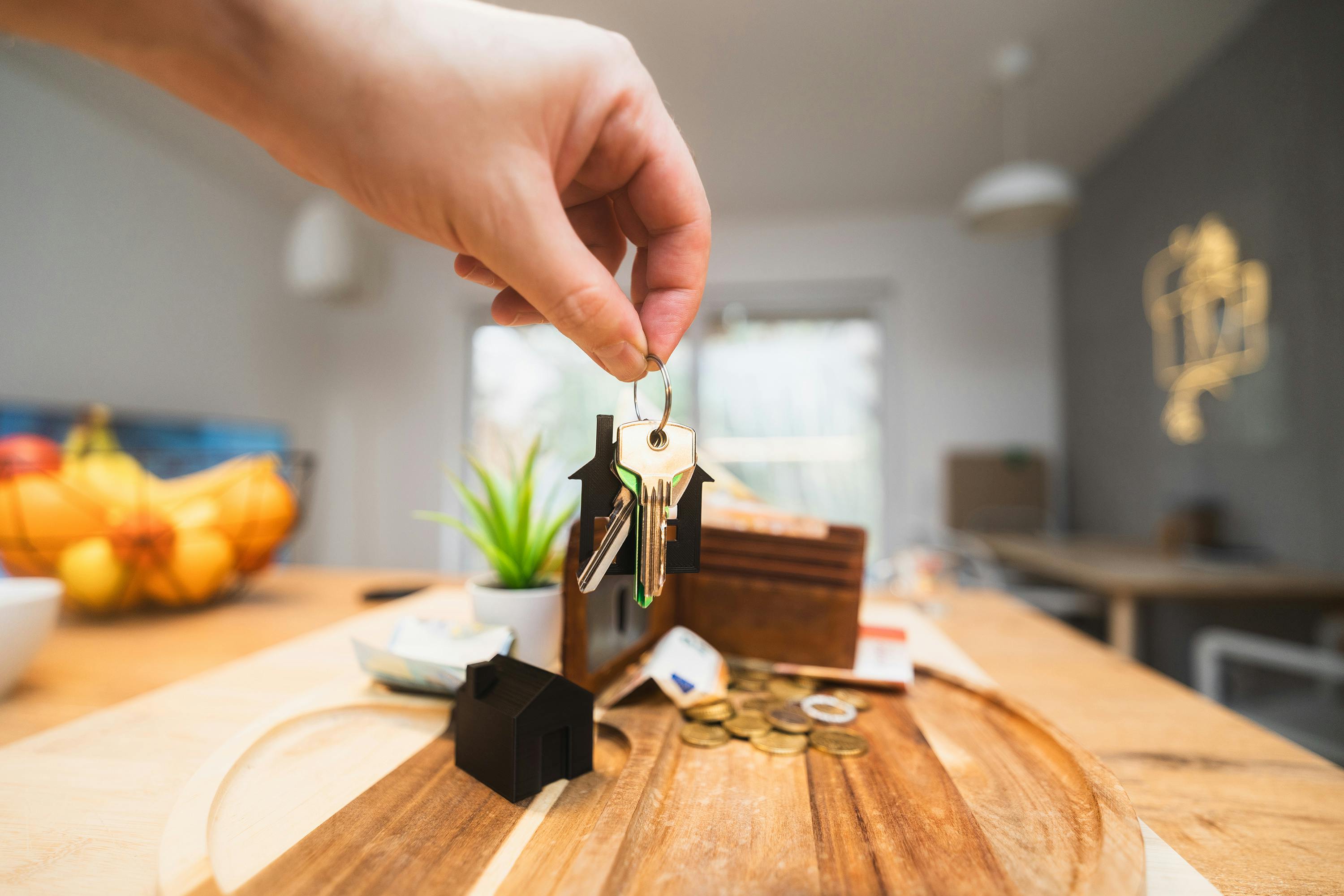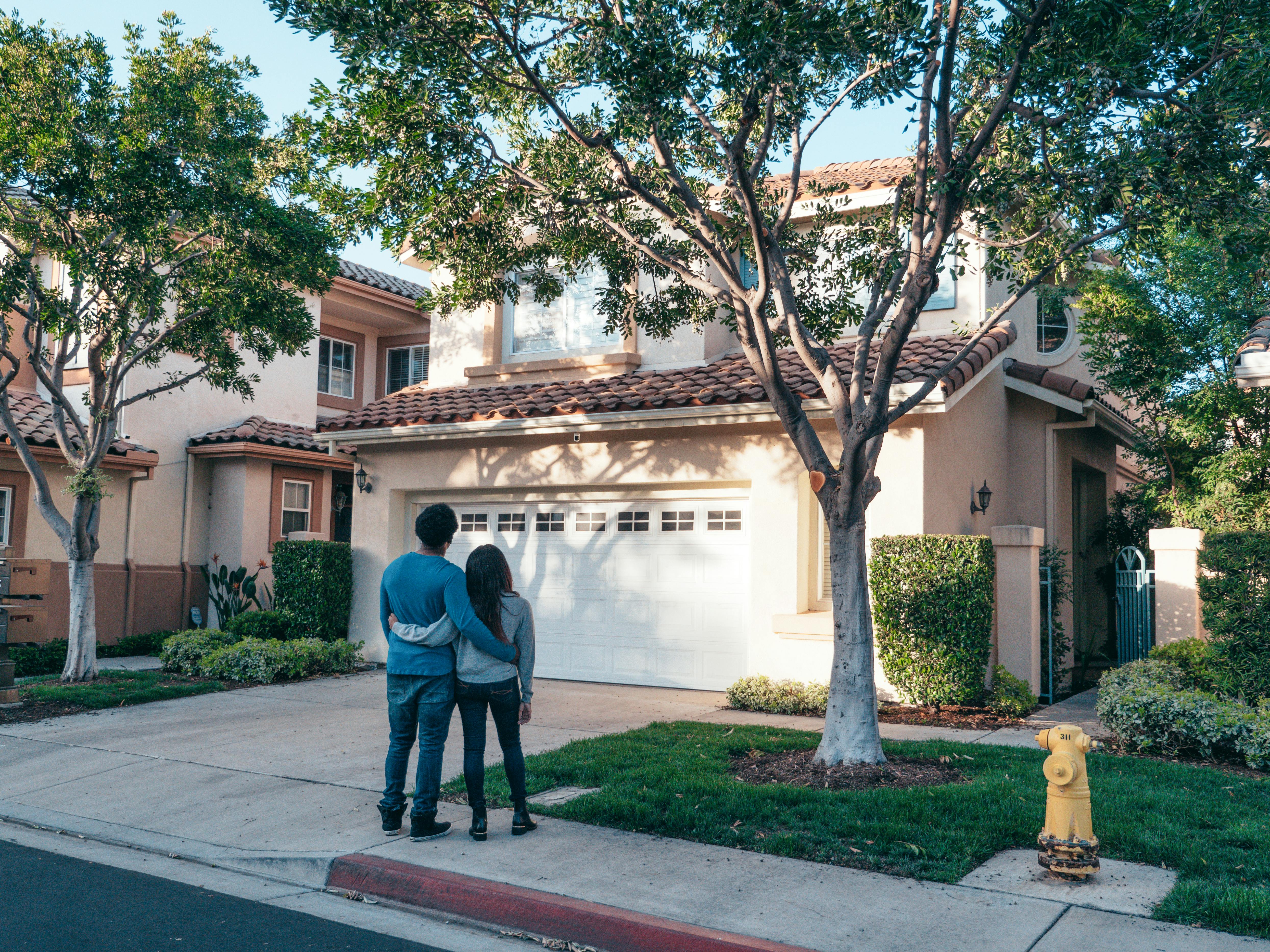February 20, 2025
How to Get a Second Home Mortgage: A Complete Guide
Owning a second home might feel like a dream, but turning that dream into reality often starts with understanding second home mortgages. Whether you're thinking of a cosy countryside retreat or a seaside escape, a second home can be a fantastic investment and a place to make lifelong memories. But before you dive in, there are a few things you need to know about financing it.
A second home mortgage isn’t quite the same as your first one. Lenders see it differently, and it comes with its own set of rules and opportunities. If you're curious about how it works or wondering if it's the right move for you, you're in the right place. Let’s break it down so you can feel confident about your next steps.
What Is A Second Home Mortgage?
A second home mortgage is a type of loan used to finance the purchase of a property that isn’t your primary residence. Unlike buy-to-let mortgages aimed at rental properties, this mortgage applies to homes intended for personal use, such as a holiday retreat or a home nearer to work. Typically, these mortgages involve stricter terms and higher interest rates than those for primary residences due to the added risk lenders perceive.
Key Features of Second Home Mortgages
Higher Deposits: Most lenders require deposits ranging between 15–25% of the property's value, significantly more than on primary residence mortgages. For example, if a property costs £250,000, you might need £37,500–£62,500 upfront.
Higher Interest Rates: Expect interest rates to be higher as the risk to lenders is considered greater since second homes are seen as non-essential. Comparing options using a UK mortgage broker ensures you're getting the best deal.
Stricter Affordability Checks: Lenders assess your finances more rigorously. They'll examine your income, outgoings, and existing financial commitments, including your current mortgage.
When to Consider a Second Home Mortgage
You might explore this option if you want a holiday home, a home closer to work, or a property for long-term investment purposes. The lender will likely ask you to confirm the home isn't being purchased for commercial purposes. If your long-term goal involves renting the property later, you might need to switch to a buy-to-let mortgage.
Benefits Of A Second Home Mortgage
A second home mortgage opens doors to various opportunities, from financial growth to lifestyle improvements. It enables you to expand your property portfolio while enjoying personalised advantages.
Investment Potential

A second home can serve as a valuable investment for building long-term wealth. Property often appreciates over time, providing capital gains when you decide to sell. If chosen wisely, the location of your second home could significantly increase its market value, enhancing your financial position.
For example, properties in desirable holiday destinations or developing urban areas tend to perform well. Collaboration with a UK mortgage broker can help identify deals tailored to your investment goals, ensuring you secure competitive rates.
Holiday Convenience
Owning a second home gives you a personal getaway whenever you need one. It provides the freedom to escape daily routines without worrying about availability or soaring rental costs during peak seasons.
Holiday properties located in scenic or tranquil areas, such as coastal towns or countryside retreats, make ideal spaces for relaxation. You can furnish it to your taste and enjoy consistent comfort. With a second home mortgage, this luxury becomes accessible without straining your primary finances.
Rental Income Opportunities
Generating rental income from your second home offsets mortgage costs and boosts cash flow. Short-term letting on platforms like Airbnb or longer-term leases attract tenants and holidaymakers, especially in high-demand locations.
Many lenders allow you to rent out your property; however, these agreements are subject to certain conditions. Some mortgages may require specific consent for letting, so it's essential to review lender policies.
How To Qualify For A Second Home Mortgage
Qualifying for a second home mortgage requires meeting specific criteria set by lenders. Understanding these eligibility aspects can improve your chances of approval and help you position yourself as a confident borrower.
Credit Score Requirements
Maintaining a good credit score is essential for a second home mortgage. Lenders often seek scores of at least 620, with higher scores offering better interest rates.
Credit scores reflect your financial behaviour, showing lenders your reliability in repaying debts. For example, if your current mortgage or credit payments are consistently on time, it reassures them of reduced lending risks.
If your credit score is lower, improving it involves reviewing your credit report for errors, settling outstanding debt, or reducing credit utilisation. Consulting a UK mortgage broker can also help you connect with lenders who specialise in second home mortgages for borrowers with less-than-ideal credit.
Income Verification
Proving you have a stable, sufficient income is critical to securing this type of loan. Lenders assess your debt-to-income (DTI) ratio, aiming for a maximum of 45%. For example, if your monthly income is £4,000 and your existing mortgage, debt, and housing costs total £1,600, your DTI ratio would be 40%. A lower ratio demonstrates the financial capacity to manage a second mortgage.
You'll be required to submit documentation like payslips, P60s, or tax returns if you're self-employed. If you have variable or additional income sources, such as rental income, include them, as they can strengthen your application. A mortgage broker can guide you in calculating your DTI accurately and presenting your financial profile effectively.
Down Payment Expectations
Deposits for second home mortgages are typically 15–25% of the property value, higher than primary residence loans. For a £250,000 property, you’d need between £37,500 and £62,500. Larger deposits can reduce interest rates and improve approval odds.
Lenders may impose stricter terms to mitigate risks associated with second homes. Building a savings fund or using equity from your primary residence are common ways to meet deposit requirements. Partnering with mortgage specialists, like the brokers through Mortgage Connector, can expose you to competitive options tailored to your circumstances.
Challenges Of A Second Home Mortgage
Taking on a second home mortgage often presents unique hurdles compared to mortgages for primary residences. Familiarising yourself with these challenges can help avoid unexpected complications.
Higher Interest Rates

Second home mortgages generally come with higher interest rates. Lenders view second homes as riskier investments since they're not primary residences and could be more prone to defaults during financial instability.
For instance, interest rates for second homes might be 1-2% higher than standard residential mortgage rates. To secure competitive rates, maintaining a strong credit score (above 700) and a low debt-to-income (DTI) ratio is essential.
An independent UK mortgage broker can be invaluable in finding tailored deals. Brokers access a wide network, including specialty lenders, helping you secure better rates and terms. It's advisable to compare options from these brokers to identify a deal that matches your unique financial situation.
Maintenance And Management Costs
Owning a second home often involves significant maintenance and management costs. These include property taxes, insurance, utilities, and general upkeep expenses, which can quickly add up. For example, insuring a second home can be 20-30% more expensive than a primary property due to factors like location risks or vacancy periods.
Consider professional management services if your property will remain vacant for extended periods or serve as a holiday rental. While these services charge a fee (typically 10-15% of rental income), they oversee tasks like tenant management, cleaning, and maintenance, reducing your workload. Ensuring your finances account for ongoing costs is a responsible way to manage your second home effectively.
Tips For Choosing The Right Second Home Mortgage
Identifying the right second home mortgage demands thorough evaluation. Considering lenders, terms, and professional advice ensures you navigate the process effectively.
Compare Lenders
Explore multiple lenders to find competitive deals. Different lenders offer varying interest rates, deposit requirements, and terms. Banks, building societies, and independent lenders may cater to second home mortgages, but each assesses risk differently. Compare at least three options to understand the range of offers available.
Look for lenders who specialise in second home mortgages, as they often provide tailored solutions. If planning to rent the property occasionally, ensure the lender allows this arrangement.
Understand The Terms And Conditions
Read all terms and conditions to avoid surprises later. Many second home mortgages include clauses that limit how you can use the property. For instance, some prohibit short-term rentals or require certain occupancy levels.
Scrutinise interest rates. Second home mortgages typically have higher rates, so fixed-rate options might help maintain predictable payments. Be mindful of additional fees, including arrangement or early repayment charges. Seek clarification if any term seems unclear, ensuring you’re fully informed before signing.
Seek Professional Advice
Engage a UK mortgage broker for expert guidance. Brokers understand lender criteria and can match your circumstances with the best mortgage options. They provide personalised advice, improving your odds of securing favourable terms.
Mortgage brokers also streamline the application process by managing communication with lenders. This reduces stress, especially when navigating complex applications. Choose brokers who specialise in second home mortgages, as their expertise ensures better rates and solutions aligned with your goals.
Conclusion
Securing a second home mortgage can open the door to exciting opportunities, whether you're looking for a personal retreat or a long-term investment. It's essential to approach the process with a clear understanding of the financial requirements, lender expectations, and potential challenges involved.
By taking the time to evaluate your options, seeking expert advice, and staying informed about market trends, you can make confident decisions that align with your financial goals. With careful planning and the right support, your second home can become a valuable asset and a source of lasting enjoyment.
Frequently Asked Questions
How is a second home mortgage different from a primary residence mortgage?
Second home mortgages typically involve higher interest rates, larger deposits, and stricter affordability checks. Lenders often require proof the property won't be for commercial use, making the process more detailed than for primary residence mortgages.
What are the benefits of owning a second home?
A second home offers lifestyle benefits, like a personal retreat, and financial growth opportunities, as property values often appreciate. It can also generate rental income to offset mortgage costs, although lender policies on renting must be considered.
How much is the down payment for a second home mortgage?
Most lenders require a deposit of 15–25% of the property's value. Meeting this requirement often calls for careful financial planning or exploring savings and investment options.
What challenges come with second home mortgages?
Second home mortgages come with higher interest rates, stricter affordability standards, and additional costs like property taxes, insurance, and maintenance. These costs are usually 20–30% higher compared to primary residences.
How do I qualify for a second home mortgage?
To qualify, you need a strong credit score, a DTI ratio below 45%, proof of stable income, and savings for a 15–25% deposit. Lenders may also require evidence the property won’t serve as a rental or commercial space.
Should I work with a mortgage broker when applying for a second home mortgage?
Yes, working with a broker can help you find tailored deals and competitive rates. Brokers can also guide you through lender-specific rules and streamline the overall application process.
Similar articles

April 23, 2025
Established fact that a reader will be distracted by the way readable content.

April 23, 2025
Established fact that a reader will be distracted by the way readable content.

April 16, 2025
Established fact that a reader will be distracted by the way readable content.


